Clone of Diploma in Sustainable Architecture and Construction
Fechas
Registro
Supported by:
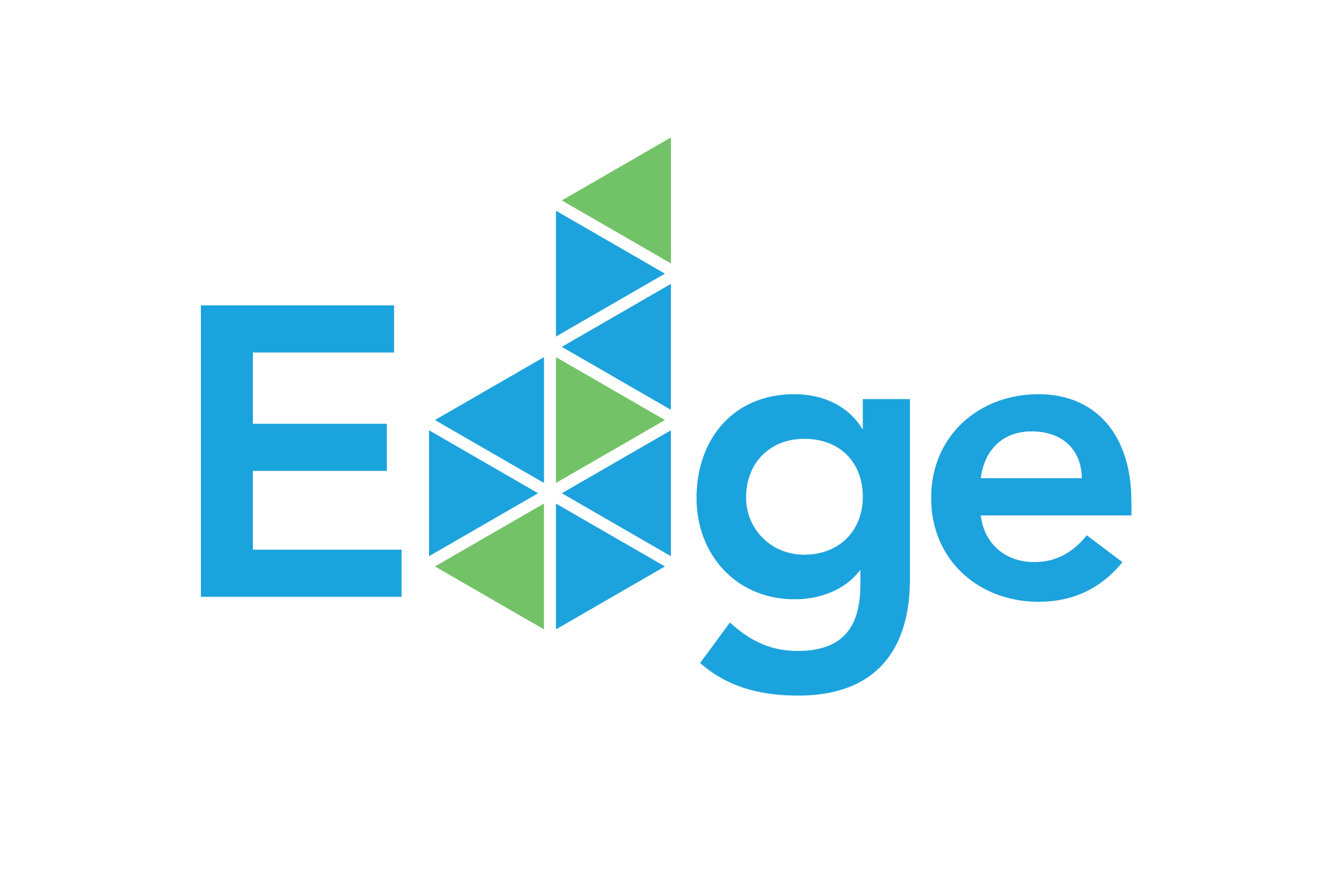 .
. 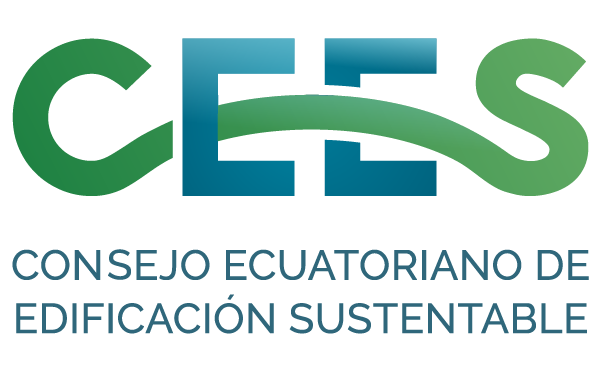
This program aims to complement the education in the chapter of sustainable design and construction for students and professionals in architecture, civil engineering, and related construction fields to acquire skills and knowledge to develop efficient buildings and environments that are respectful to the environment and society. The program focuses on projects increasing levels of comfort and quality of life they offer without implying an increase in economic terms.
The justification for the course is based on the knowledge and application of sustainability strategies being an increasingly relevant and demanded field in the construction industry, especially in a country with such cultural, environmental, social, and historical diversity, which requires buildings that are in harmony with their surroundings and users. This program reviews principles of passive design, bioclimatic design, biophilia, explores strategies for efficiency in water and energy consumption, the selection of sustainable materials and construction techniques, strategies for decarbonization of buildings and circularity in construction, and the most commonly used sustainable construction certifications in our context. Finally, it explores financial opportunities that sustainable projects have with incentives for builders and for a growing group of clients looking for sustainable homes. This program fulfills the enabling course requirement to take the EDGE expert V3 certification exam.
In this context, participants will be able to apply these tools and knowledge in their building projects from the design, planning, financing, and construction stages, improving levels of comfort and quality of life.
Alignment with the SDGs:
The program is directly designed and aligned with the following SDGs:
- SDG 4: Quality Education
- SDG 7: Affordable and Clean Energy
- SDG 9: Industry, Innovation, and Infrastructure
- SDG 11: Sustainable Cities and Communities
- SDG 12: Responsible Consumption and Production
- SDG 13: Climate Action
Online
117 academic hours in real-time via Zoom with instructors
Tuesday and Thursday: 18:00-20:15
Saturday: 8:00-11:00
General Public Rate: $1350
Early Bird Rate 1: $1200 (until April 22)
Group and USFQ Community Rate: $1250
General Description
General Objective
- Develop skills and abilities in designing sustainable projects with high levels of efficiency, harmony, and comfort.
- Educate professionals and students in the construction industry on feasible sustainable techniques and processes that can deliver projects with competitive sustainable construction certifications in the market.
- Train participants about the financial opportunities available in our environment for sustainable projects.
Target Audience
This program is aimed at professionals linked to the construction industry in both public and private sectors, financiers, developers, promoters, and builders interested in understanding the strategies and business of sustainable construction. It also targets recent graduates and students who are aware of the environmental impact generated by the construction industry and who wish to contribute to the planet by planning more sustainable buildings and gaining more job opportunities in the professional field.
Graduate Profile
Professionals who complete the program will be able to:
- Apply sustainability principles in the design and construction of projects in our environment
- Propose construction projects to apply for sustainable construction certifications
- Design sustainable architectural projects
- Construct projects with sustainability standards
Learning Outcomes
| # | Learning Outcomes | Level |
|---|---|---|
|
1 |
Understand the principles and foundations of sustainable architectural design. |
High |
|
2 |
Understand strategies for efficient water and energy use, material selection, and sustainable construction techniques. |
High |
|
3 |
Identify financial opportunities for sustainable projects in our environment. |
Medium |
|
4 |
Develop a personal criterion on proposing sustainable projects within the framework of sustainable construction certifications. |
High |
Content
MODULO I. DISEÑO URBANO SOSTENIBLE
Responsable académico / profesor: Patricio Moreno, Arq., Mgt.
Duración: 15 horas
Objetivo de aprendizaje: Comprender el origen del problema climático, y la inter-relación entre sostenibilidad del edificio, entorno urbano, calidad de vida y resiliencia a desastres naturales.
Contenido del módulo:
- Ciudad sostenible: definición y planificación
- Introducción al cambio climático
- El papel de las ciudades en la mitigación del cambio climático
- Diseño urbano sostenible y movilidad
- Calidad de vida y resiliencia urbana
- Diseño de espacios públicos para sostenibilidad
- Desafíos y oportunidades para el futuro
MODULO II. FUNDAMENTOS DE DISEÑO Y CONSTRUCCIÓN SOSTENIBLE (MAYORES EFICIENCIAS)
Responsable académico / profesor: Ignacio Guerra P., Arq., M.Sc.
Duración: 18 horas
Objetivo de aprendizaje: Determinar los principios de diseño sostenible, para implementar proyectos factibles en nuestro contexto.
Contenido del módulo:
- Introducción al edificio sostenible y su contexto
- Principios de diseño sostenible
- Arquitectura bioclimática, biofilia y biomímesis
- Estrategias para el diseño pasivo y activo, Passivehaus
- Confort térmico, lumínico y acústico
- Descarbonización y circularidad en la construcción
- Principios de la construcción sostenible (energía, agua y materiales)
- Ejemplos prácticos (ejercicio de diseño y caso empresarial)
MODULO III. EFICIENCIA ENERGÉTICA EN EL DISEÑO Y CONSTRUCCIÓN
Responsable académico / profesor: Pedro José Samaniego, Arq., Mgt.
Duración: 15 horas
Objetivo de aprendizaje: Comprender los principios de las estrategias de diseño y construcción para edificios con eficiencia energética.
Contenido del módulo:
- Soleamiento, geometría solar y fundamentos/ Luz lumínico y comodidad visual solar, confort
- Iluminación natural y artificial
- Certificación en Minergie/ Eficiencia energética Principios CEELA
- Energías renovables/ Design Charrette (taller multidisciplinarios)/ Diseño integrado del Edificio
- Showcase de CEELA en Ecuador/ Descarbonización y circularidad en la construcción
- Modelos de analisis/ Monitoreo y confort adaptativo
MODULO IV. EFICIENCIA EN EL CONSUMO DE AGUA EN EL DISEÑO Y CONSTRUCCIÓN
Responsable académico / profesor: Miguel Andrés Guerra, Ph.D.
Duración: 15 horas
Objetivo de aprendizaje: Comprender los principios de las estrategias de diseño y construcción para edificios con eficiencia en el consumo de agua.
Contenido del módulo:
- Ciclo hidrológico del agua
- Gestión eficiente del agua en proyectos arquitectónicos
- Diseño de sistemas de captación de agua de lluvia
- Sistemas de Recolección y reutilización de agua
- Sistemas activos y pasivos de calentamiento de agua
- Estrategias de ahorro de agua en edificaciones
MODULO V. MATERIALES SOSTENIBLES Y TÉCNICAS DE CONSTRUCCIÓN
Responsable académico / profesor: Carlos Miquel, Arq., MSc./ Patricio Cevallos, Ing., Mgt
Duración: 19 horas
Objetivo de aprendizaje: Comprender los principios de la selección de materiales para edificios con certificaciones sostenibles.
Contenido del módulo:
- Técnicas constructivas sostenibles o confort térmico, materiales, aislantes, vidrios
- Técnicas constructivas con light steel frame
- Técnicas constructivas con tierra
- Técnicas constructivas con madera
- Materiales para certificación EDGE
- Huella de carbono. Análisis del ciclo de vida
MODULO VI. EJERCICIO PRÁCTICO DE CERTIFICACIÓN SOSTENIBLE (EDGE)
Responsable académico / profesor: Pablo Trejo, Arq.
Duración: 20 horas
Objetivo de aprendizaje: Desarrollar un plan para obtener una certificación de construcción sostenible utilizando los principios y técnicas aprendidos.
Contenido del módulo:
- Estándares y diseño de certificación de construcción sostenible Estándares Urbanísticos
- Estándares y diseño de certificacion de construcción sostenible EDGE
- Medidas verdes y sostenibles EDGE
- Medidas de eficiencia energía y consumo de agua
- Medidas materiales y software
- Guía de aplicación de la metodología EDGE
- Preparación EDGE Expert V3
- Modelo de examen para Experto EDGE
- Taller desarrollo de proyecto integrador EDGE
MODULO VII. OPORTUNIDADES FINANCIERAS PARA PROYECTOS SOSTENIBLES
Responsable académico / profesor: Ignacio Guerra P., Arq., M.Sc.
Duración: 15 horas
Objetivo de aprendizaje: Aprender sobre las oportunidades que tienen los proyectos de construcción sostenibles en términos de ventas, tributario y con entidades financieras.
Contenido del módulo:
- Estructura financiera de proyectos sostenibles
- Incentivos de entidades financieras
- Cómo presentar el proyecto para incentivos financieros
- Incentivos tributarios
- Proyectos sostenibles y nivel de ventas
- Caso de estudio
Instructors
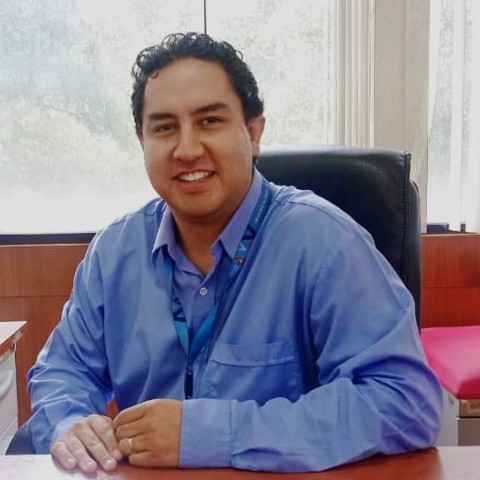
Patricio Moreno. Arq. Mgt.
Patricio holds a master's degree in Territory and Sustainable Architecture from the Polytechnic University of Milan, Italy. His professional practice has been carried out at the Patricio Guerrero Architecture Studio in Quito - Ecuador, a studio with which he has developed projects in architectural design, urban planning, sustainable architecture, heritage architecture, and architectural research. He is the Director of School Administration within the Undersecretary of Education of Quito (Ministry of Education), and has also served as the National Director of Physical Infrastructure, Acting, within the same Ministry of Education. He is a research professor at PUCE and participates as a faculty member in various Diploma and Master's programs at prestigious universities.
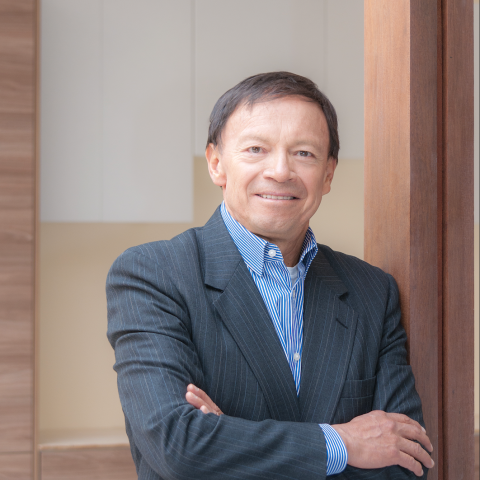
Ignacio Guerra P. Arq. M.Sc
Ignacio is a professor of Construction and Sustainability at the College of Architecture and Interior Design of USFQ, and Director of the Diploma in Sustainable Architecture and Construction at USFQ. His academic background includes an MBA with a focus on sustainability and various courses on sustainable design and building, and sustainable cities and environments. Ignacio was part of the jury for the 2023 Sustainability Award of the Ecuadorian Council for Sustainable Building
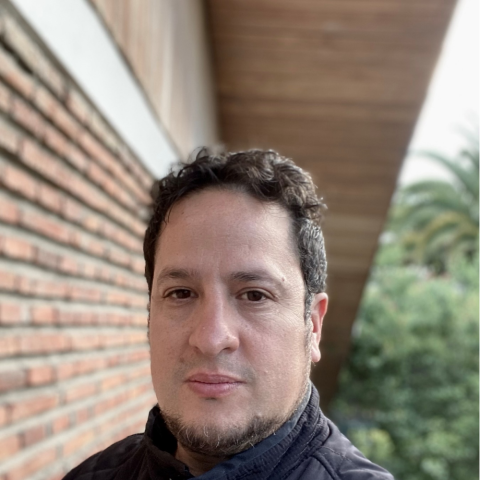
Pedro José Samaniego. Arq. Mgt
Professor of Architectural Projects at the University of Azuay. He is also a professor in master's programs and a guest lecturer at several universities. He is a researcher with several publications in various architectural journals. He has been the manager of the Architecture and Design office AyD since 2005. He won the First National Prize at the XVII Quito Architecture Biennial in the architectural design category with the Samaniego Houses in 2010. He also received the Sustainable Cities and Human Settlements Award for the Cerro Verde Ecolodge and Galápagos Organic Orgal S.A. Research Center at the 11th World Forum on Human Settlements as part of HABITAT III, in Quito in 2016. In 2021, he won the first CEELA Showcase in Ecuador with the Faculty Building and Tech Campus of the University of Azuay. Since 2020, he has been the Director of Planning at the University of Azuay.
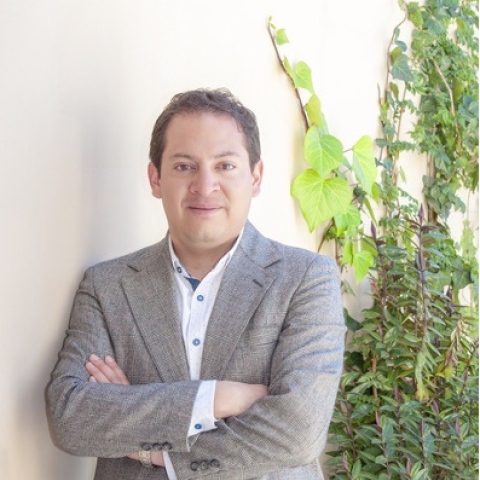
Miguel Andrés Guerra. Ph.D.
Miguel Andrés Guerra holds a PhD in Civil Engineering from Virginia Tech (United States). He also has an MSc in Construction Engineering and Project Management from Iowa State University (Fulbright-United States). He studied Civil Engineering at the Universidad San Francisco de Quito (USFQ, Ecuador). He is a professor of Civil Engineering and Architecture at USFQ. He directs the Master's in Real Estate and Construction Business Management (MDI). His research focuses on decision-making for the design and construction of sustainable infrastructure projects; the planning of sustainable, smart, and resilient cities; and the development of professionals who not only have solid technical and practical knowledge but also a social understanding to address challenges in humanitarian, environmental, social, and equity issues through infrastructure. He has directed infrastructure projects in Ecuador and the United States for developments such as earthmoving, drinking water works, sewage, underground electrical and fiber optic cables, roads, aqueducts, water reservoirs, construction of houses and buildings for residential projects, etc. Miguel Andrés has led the planning and construction of more than a dozen real estate projects. He has provided technical advice and lectures in more than 15 cities in the United States, 2 in England, Scotland, India, Croatia, Serbia, and Colombia.
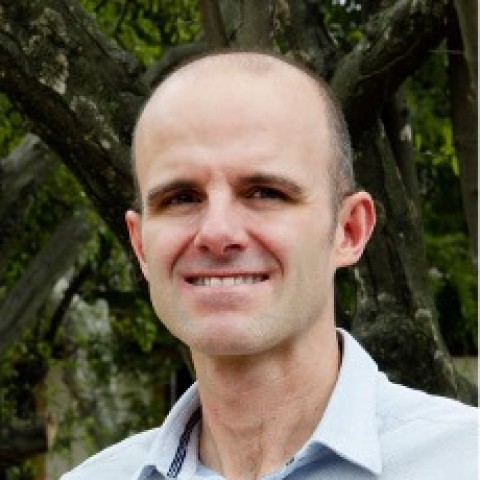
Carlos Miquel. Arq. MSc.
Architect from the Polytechnic University of Catalonia and the Technical University of Berlin. Official Master's in Building Technology with a specialization in Construction and Technological Innovation from the Polytechnic University of Catalonia. Postgraduate in Restoration of Architectural Heritage from Structural Constructive Analysis to Intervention Technologies by the Polytechnic University of Catalonia. Postgraduate in Diagnosis, Repair, and Maintenance of Residential Buildings by the UPC. Own company "Carlos Miquel Arquitectura" since 2004 in Ecuador and until 2013 in Barcelona. Construction of the Governmental Platform for Financial Management. Faculty member and Coordinator of the construction area at the Faculty of Architecture of the Universidad San Francisco de Quito.
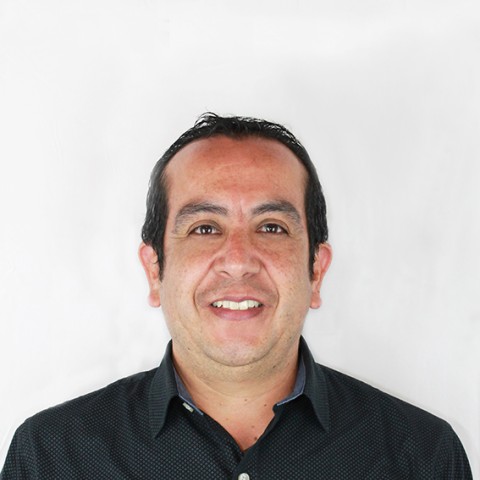
Pablo Trejo. Arq.
Architect with experience in design, regulations, and sustainable construction. Pablo's experience includes more than 15 years in regulations and construction and over 5 years in local and international sustainability regulations. Pablo has been accredited as an Expert, Auditor, and Instructor by EDGE through the National Financial Corporation of the World Bank. Pablo has worked on more than 60 certified sustainable projects with over 1.1 million square meters. He currently has 5 projects, more than 175,000 square meters, in the process of obtaining EDGE certification. He has experience as a professor and guest speaker at various universities in Ecuador. He is currently the Coordinator of special projects for the collaborative project entity, as well as a Trainer at the Architecture Studies Center of the CAE-P.
Schedule
| Month | Day | Hours | Schedule | Module | Topics | Instructor | |
|---|---|---|---|---|---|---|---|
| May | 21 | Tuesday | 2,3 | 18h00 to 20h15 | Module 1 - Sustainable Urban Design | INTRODUCTION TO URBAN CLIMATE CHANGE Definition and scope of urban climate change. Factors contributing to climate change in urban environments. Examples of climate change impacts on cities globally and locally. |
Patricio Moreno, Arch. Mgt. |
| 23 | Thursday | 2,3 | 18h00 to 20h15 | THE ROLE OF CITIES IN CLIMATE CHANGE MITIGATION Importance of cities as drivers of climate action. Mitigation strategies for urban climate change. Examples of successful sustainable city projects and policies. |
|||
| 25 | Saturday | 3 | 8h00 to 11h00 | SUSTAINABLE URBAN DESIGN AND MOBILITY Relationship between sustainable urban design and mobility. Planning for infrastructure to promote sustainable mobility. Case studies of cities with efficient and sustainable transport systems. |
|||
| 28 | Tuesday | 2,3 | 18h00 to 20h15 | QUALITY OF LIFE AND URBAN RESILIENCE Relationship between urban quality of life and sustainability. Strategies to enhance urban resilience against climate change. Case studies of resilient and sustainable cities. |
|||
| 30 | Thursday | 2,3 | 18h00 to 20h15 | DESIGNING PUBLIC SPACES FOR SUSTAINABILITY Importance of designing public spaces in sustainable urban environments. Urban design principles for creating inclusive and sustainable public spaces. Examples of successful public space design projects. |
|||
| June | 1 | Saturday | 3 | 8h00 to 11h00 | CHALLENGES AND OPPORTUNITIES FOR THE FUTURE Reflection on future challenges in sustainable urban design. Identification of opportunities for innovation and continuous improvement. Commitment to action for promoting more sustainable urban environments. |
||
| June | 6 | Thursday | 2,3 | 18h00 to 20h15 | Module 2 - Foundations of Sustainable Design and Construction | Introduction to Sustainable Building and its Context | Ignacio Guerra P., Arch. M.Sc. |
| 8 | Saturday | 3 | 8h00 to 11h00 | Sustainable Design Principles | |||
| 11 | Tuesday | 2,3 | 18h00 to 20h15 | Bioclimatic Architecture, Biophilia, and Biomimicry | |||
| 13 | Thursday | 2,3 | 18h00 to 20h15 | Strategies for Passive and Active Design, Passive House | |||
| 15 | Saturday | 3 | 8h00 to 11h00 | Thermal, Lighting, and Acoustic Comfort | |||
| 18 | Tuesday | 2,3 | 18h00 to 20h15 | Decarbonization and Circularity in Construction | |||
| 20 | Thursday | 3 | 18h00 to 21h00 | Sustainable Construction Principles (energy, water, materials) / Practical Examples (design exercise and business case) | |||
| 25 | Tuesday | 2,3 | 18h00 to 20h15 | Module 3 - Energy Efficiency in Design and Construction | Solar Positioning, Solar Geometry and Basics / Solar Lighting and Visual Comfort | Pedro José Samaniego, Arch., Mgt. | |
| 27 | Thursday | 2,3 | 18h00 to 20h15 | Natural and Artificial Lighting | |||
| 29 | Saturday | 3 | 8h00 to 11h00 | Minergie Certification / Energy Efficiency Principles CEELA | |||
| July | 2 | Tuesday | 2,3 | 18h00 to 20h15 | Renewable Energies / Design Charrette (multidisciplinary workshop) / Integrated Building Design | ||
| 4 | Thursday | 2,3 | 18h00 to 20h15 | Showcase of CEELA in Ecuador / Decarbonization and Circularity in Construction | |||
| 6 | Saturday | 3 | 8h00 to 11h00 | Analysis Models / Monitoring and Adaptive Comfort | |||
| 11 | Thursday | 2 | 18h00 to 20h30 | Module 4 - Efficiency in Water Consumption in Design and Construction | Hydrological Water Cycle | Miguel Andrés Guerra, Ph.D. | |
| 13 | Saturday | 2 | 8h00 to 11h00 | Efficient Water Management in Architectural Projects | |||
| 16 | Tuesday | 2 | 18h00 to 20h30 | Design of Rainwater Harvesting Systems | |||
| 18 | Thursday | 2 | 18h00 to 20h30 | Water Collection and Reuse Systems | |||
| 20 | Saturday | 3 | 8h00 to 11h00 | Active and Passive Water Saving Strategies in Buildings | |||
| 23 | Tuesday | 2 | 18h00 to 20h30 | ||||
| 25 | Thursday | 2 | 18h00 to 20h30 | ||||
| 27 | Saturday | Academic Recess | |||||
| August | 22 | Thursday | |||||
| 24 | Saturday | 3 | 8h00 to 11h00 | Module 5 - Sustainable Materials and Construction Techniques | Sustainable Construction Techniques | Carlos Miquel, Arch. MSc. / Patricio Cevallos, Eng., Mgt. | |
| 27 | Tuesday | 2 | 18h00 to 20h30 | Thermal Comfort, Materials, Insulators, Glass | |||
| 29 | Thursday | 2 | 18h00 to 20h30 | Light Steel Frame Construction Techniques | |||
| 31 | Saturday | 3 | 8h00 to 11h00 | Earth Construction Techniques | |||
| September | 3 | Tuesday | 2 | 18h00 to 20h30 | Wood Construction Techniques | ||
| 5 | Thursday | 3 | 18h00 to 21h00 | Materials for EDGE Certification | |||
| 7 | Saturday | 2 | 8h00 to 11h00 | Carbon Footprint. Life Cycle Analysis | |||
| 10 | Tuesday | 2 | 18h00 to 20h30 | ||||
| September | 14 | Saturday | 3 | 8:00 AM to 11:00 AM | Module 6 - Sustainable Certification Practical Exercise (EDGE) | Local and International Sustainability Model Increased buildability in Quito Basic and maximum buildability Urbanistic buildability standards Sustainability buildability standards Compliance matrix for standards |
Pablo Trejo, Arch. |
| 17 | Tuesday | 2,3 | 6:00 PM to 8:15 PM | ||||
| 19 | Thursday | 2,3 | 6:00 PM to 8:15 PM | MASTERCLASS | |||
| 21 | Saturday | 3 | 8:00 AM to 11:00 AM | Orientation and Overview of EDGE Definition of green and sustainable design EDGE software resources Presentation of the integrated project Workshop 1 – Creating the project in EDGE App |
|||
| 24 | Tuesday | 2,3 | 6:00 PM to 8:15 PM | Review of Workshop 1 EDGE green and sustainable measures 2 EDGE methodology application guide Workshop 2 – Practical exercise with EDGE software |
|||
| 26 | Thursday | 2,3 | 6:00 PM to 8:15 PM | Review of Workshop 2 Typologies in EDGE App EDGE self-assessment process EDGE Expert exam model Workshop 3 – Development of the integrated project |
|||
| 28 | Saturday | 5 | 8:00 AM to 1:00 PM | Review of the process in EDGE App Design Review of the process in EDGE App Water Review of the process in EDGE App Energy Review of the process in EDGE App Materials Backup material and information upload Generation of the self-assessment |
|||
| October | 3 | Thursday | 2,3 | 6:00 PM to 8:15 PM | Module 7 - Financial Opportunities for Sustainable Projects | Financial structure of sustainable projects | Ignacio Guerra P., Arch. M.Sc. |
| 5 | Saturday | 3 | 8:00 AM to 11:00 AM | Financial entity incentives | |||
| 8 | Tuesday | 2,3 | 6:00 PM to 8:15 PM | How to present the project for financial incentives | |||
| 10 | Thursday | 2,3 | 6:00 PM to 8:15 PM | Tax incentives | |||
| 12 | Saturday | 3 | 8:00 AM to 11:00 AM | Sustainable projects and sales level | |||
| 15 | Tuesday | 2,3 | 6:00 PM to 8:15 PM | Case study | |||
Parameters for Certificate Issuance
Evaluation Mechanism
- Module 1: Evaluation - 10%
- Module 2: Evaluation - 10%
- Module 3: Evaluation - 10%
- Module 4: Evaluation - 10%
- Module 5: Evaluation - 10%
- Module 6: Evaluation - 10%
- Module 7: Evaluation - 15%
- Zoom Sessions (attendance and participation): 25%
Certificate of Completion
At the end of the course, participants must achieve a minimum of 80% total attendance in the program as well as pass the grading components with a minimum of 80%.
If these conditions are met, the Universidad San Francisco de Quito will grant a certificate for the number of academic hours completed.
The Universidad San Francisco de Quito will award a digital badge of the academic achievements obtained as a participant. This badge is a digital version of the academic certificate which can be shared online in a more efficient manner and as a reliable method to verify the certification in real-time.
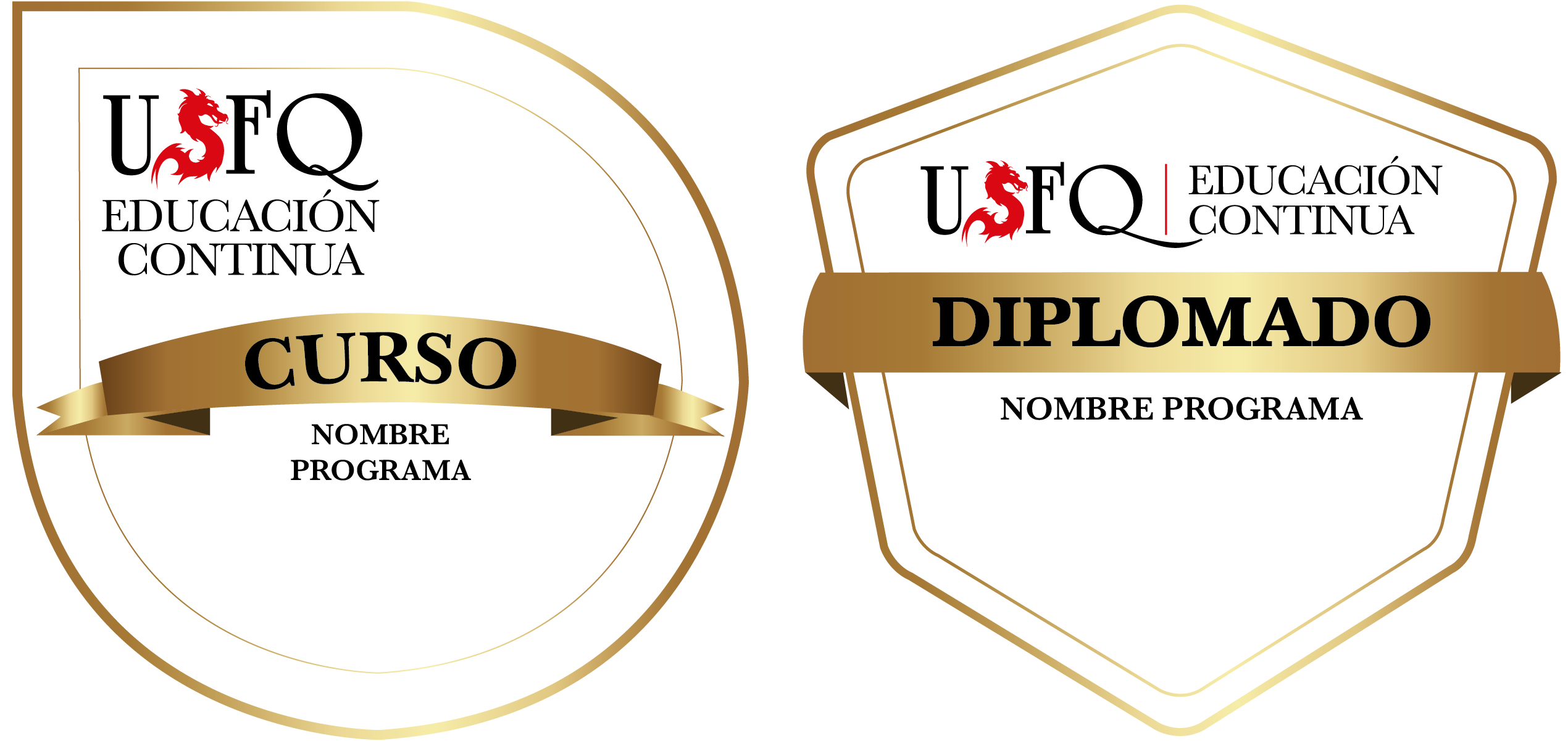
Registration
General Public Rate: $1350
Early Bird Rate 1: $1200 (until April 22)
Group and USFQ Community Rate: $1250
Payment for the program can be made through the following methods:
STEP 1: Make the Payment
Bank Transfer or Counter Payment
Account Details:
In the name of Universidad San Francisco de Quito
Banco Bolivariano
Checking account No. 5075003350
(RUC: 1791836154001)In the name of Universidad San Francisco de Quito
Banco Pichincha
Checking account No. 3407330004
(RUC: 1791836154001)
Credit Card
Click the following PAY HERE link and complete the information requested by the form. Once finished, you will be automatically registered in the system.
With credit cards from Banco de Pichincha, Banco Bolivariano, Produbanco, Banco de Guayaquil, and Banco del Austro, you can access the following financing: 3 to 12 months interest-free.
STEP 2: Confirm Your Payment
If you made the payment by Transfer or Deposit, please send a scanned copy of the deposit receipt and your personal information (full name, ID number, phone number, and address) to the following email: rordonez@usfq.edu.ec
* If you need an invoice with details different from those of the participant, specify in the email the following information (company name, RUC/ID, phone, address, and email).
If you made the payment with Credit Card, there is no need to confirm your payment, as the system will automatically register your data.
STEP 3: Registration Confirmation
You will receive a confirmation email for your registration, with relevant course information.
* The program coordination reserves the right to suspend or reschedule the activity if it does not have the minimum number of students required or due to force majeure. In such cases, the full amount of money will be refunded to the enrolled students as soon as possible.

